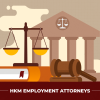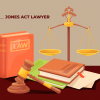
Money problems have a way of sneaking up on people, even the most responsible ones. A sudden medical emergency, a job loss you never saw coming, or just the rising cost of… well, everything lately — it can all pile up fast. And when the debt gets too heavy to keep juggling, the idea of bankruptcy sometimes shifts from scary to a small sliver of hope.
For folks in Florida who still have a steady paycheck coming in, Chapter 13 bankruptcy can offer a way to reorganize the mess instead of hitting rock bottom. It’s not a quick fix, but it gives you breathing room and a structured plan.
And honestly, having a Chapter 13 Bankruptcy Attorney for debt relief in Florida walk you through the whole thing can be the difference between feeling overwhelmed and finally feeling like you’re steering the ship again.
What Is Chapter 13 Bankruptcy?
You may have heard people call Chapter 13 the “wage earner’s plan,” which makes sense — it’s designed for people who still have income coming in but can’t keep up with everything they owe. Unlike Chapter 7, where some assets may be sold to pay creditors, Chapter 13 lets you keep things like your home, your car, and other essentials while you pay debts back little by little.
Here’s the basic idea: you and your attorney create a repayment plan that lasts three to five years. You send one set payment each month to a trustee — kind of like a middleperson appointed by the court — and they distribute the money to your creditors. And once you get through all the payments? Many remaining eligible debts are wiped away for good.
A Chapter 13 Bankruptcy Attorney for debt relief in Florida helps set all this up: the paperwork, the plan, the negotiations… the whole maze.
Why Choose Chapter 13 Bankruptcy?
If you’re in Florida and trying to keep your home or other important assets, Chapter 13 can be a lifesaver. Here are a few of the bigger perks, broken down without all the legal jargon:
- You get to keep your stuff: Homes, cars, tools you need for work — you don’t have to give those up, as long as the plan accounts for what you owe.
- Foreclosure hits pause: The moment that petition is filed, foreclosure stops. It’s called an “automatic stay,” and it gives homeowners a chance to catch up instead of losing everything.
- It’s like putting your bills on one tab: Instead of a dozen payments going out every month, you make one payment to the trustee. Life gets a little less chaotic.
- Plans can be tweaked: If your income changes (and whose doesn’t?), your lawyer can help adjust the plan.
- Co-signers get a break too: If someone else signed on your loan, Chapter 13 can give them temporary protection from collectors.
This all sounds neat and tidy, but deciding whether Chapter 13 is the right choice is not simple. That’s where real legal guidance becomes absolutely worth it.
The Role Of A Chapter 13 Bankruptcy Attorney In Florida
Bankruptcy law is… well, let’s just say it’s not exactly light reading. There are deadlines everywhere, forms that all need to be perfect, and rules that change depending on the type of debt, your income, and even where in Florida you live.
A Chapter 13 Bankruptcy Attorney in Florida basically acts as your guide. Here are some of the big things they handle:
- Checking if you actually qualify: They look at your income, debts, assets — all the nitty-gritty — to see if Chapter 13 makes sense.
- Filing everything correctly: Petitions, schedules, financial disclosures, repayment plans… it’s a stack of paperwork you don’t want to get wrong.
- Talking to creditors: They negotiate interest, payment amounts, and sometimes deadlines.
- Showing up in court with you: They’ll walk you through hearings so legal jargon doesn’t blindside you.
- Keeping you compliant once the plan starts: Missed payments or missed reports can derail the whole thing, so their guidance keeps you on track.
A lot of this stuff seems small on the surface, but the truth is: one small mistake can get a case dismissed. And starting over under that stress? Not fun.
Florida-Specific Considerations In Chapter 13 Cases
Bankruptcy might be federal, but each state has its own twists. Florida, for example, has some of the strongest protection laws in the country — especially for homeowners. The famous homestead exemption, for instance, means you may be able to protect the full value of your primary home. Not every state offers that level of security.
There are other exemptions too — certain personal items, vehicles, wages, retirement accounts — and each has its own rules and limits.
A Chapter 13 Bankruptcy Attorney for debt relief in Florida knows how to apply these exemptions correctly. Therefore, you will get the protection that you need, rather than accidentally leaving something exposed. They’re also familiar with the expectations of the courts here, including the quirks that aren’t written in any law but show up in practice.
Eligibility And The Means Test
Not everyone can just file for Chapter 13. There are income requirements, debt limits, and the infamous “means test.” It compares your income to the median income in Florida for similar households. If your income is too low or too high, you may have to consider different options.
That’s another spot where the attorney comes in. They help gather documents, run the calculations, and make sure everything lines up so you’re filing under the right chapter. Messing this part up can slow everything down or shut the door entirely.
The Chapter 13 Process at a Glance
The whole thing normally unfolds like this:
- Initial sit-down: You and your attorney go through everything — income, bills, debts, assets — to decide if Chapter 13 fits.
- Filing the petition: Once it’s filed, that automatic stay kicks in immediately. Collectors have to stop calling, garnishments stop, and lawsuits freeze.
- Proposing the repayment plan: You and your lawyer figure out a reasonable amount you can pay each month. It has to be realistic, because you’ll be doing this for years.
- Meeting of creditors (the 341 meeting): It sounds scary, but it’s usually straightforward. Creditors or the trustee may ask questions, and that’s about it.
- Confirmation hearing: A judge reviews the plan. If it checks out legally and financially, it gets approved.
- Making payments: You start sending payments to the trustee. Any major financial changes? Your attorney needs to know so adjustments can be made.
- Discharge: If you stick with it and complete the plan, many remaining debts are erased. It’s a strange feeling — kind of like stepping into financial sunlight after years stuck in the fog.
Each step has its own set of rules and timing. One missed document or deadline can throw everything off, which is why having an attorney involved makes the road smoother.
The Long-Term Impact of Chapter 13 Bankruptcy
Bankruptcy does affect your credit at first, there’s no point sugarcoating that. But Chapter 13 also helps you rebuild a healthier financial foundation. People who complete their plans often come out with better budgeting habits, less debt, and a clearer picture of their finances.
Florida also protects people who have gone through bankruptcy from certain kinds of discrimination. For example, employers can’t refuse to hire you just because you filed.
A Chapter 13 Bankruptcy Attorney for debt relief in Florida can even help you think ahead — how to rebuild credit, how to avoid falling back into old patterns, and how to take advantage of the “fresh start” you’ve worked hard for.
Rebuilding Financial Stability Through Guidance and Structure
When you’re deep in debt, it feels like drowning — like you’re kicking just to keep your head above water. Chapter 13 doesn’t magically erase everything, but it does give you structure and a path forward. It lets you keep the things that matter most while tackling the debt piece by piece.
And having a knowledgeable Chapter 13 Bankruptcy Attorney in Florida beside you means you’re not trying to figure all of this out on your own.
They handle the legal maze while you focus on getting life back on track. With the right plan and the right guidance, Chapter 13 can be less of an ending and more of a much-needed beginning.











0 Reply
No comments yet.